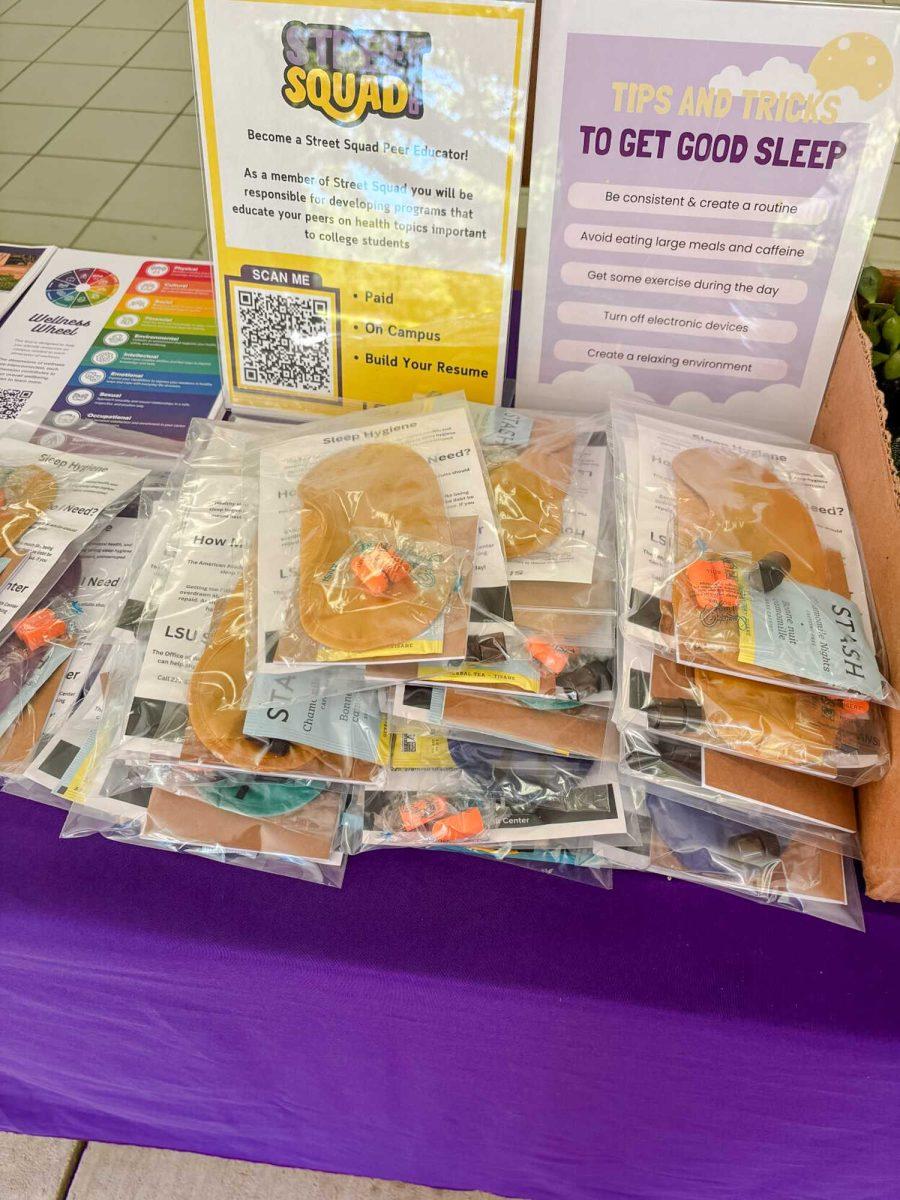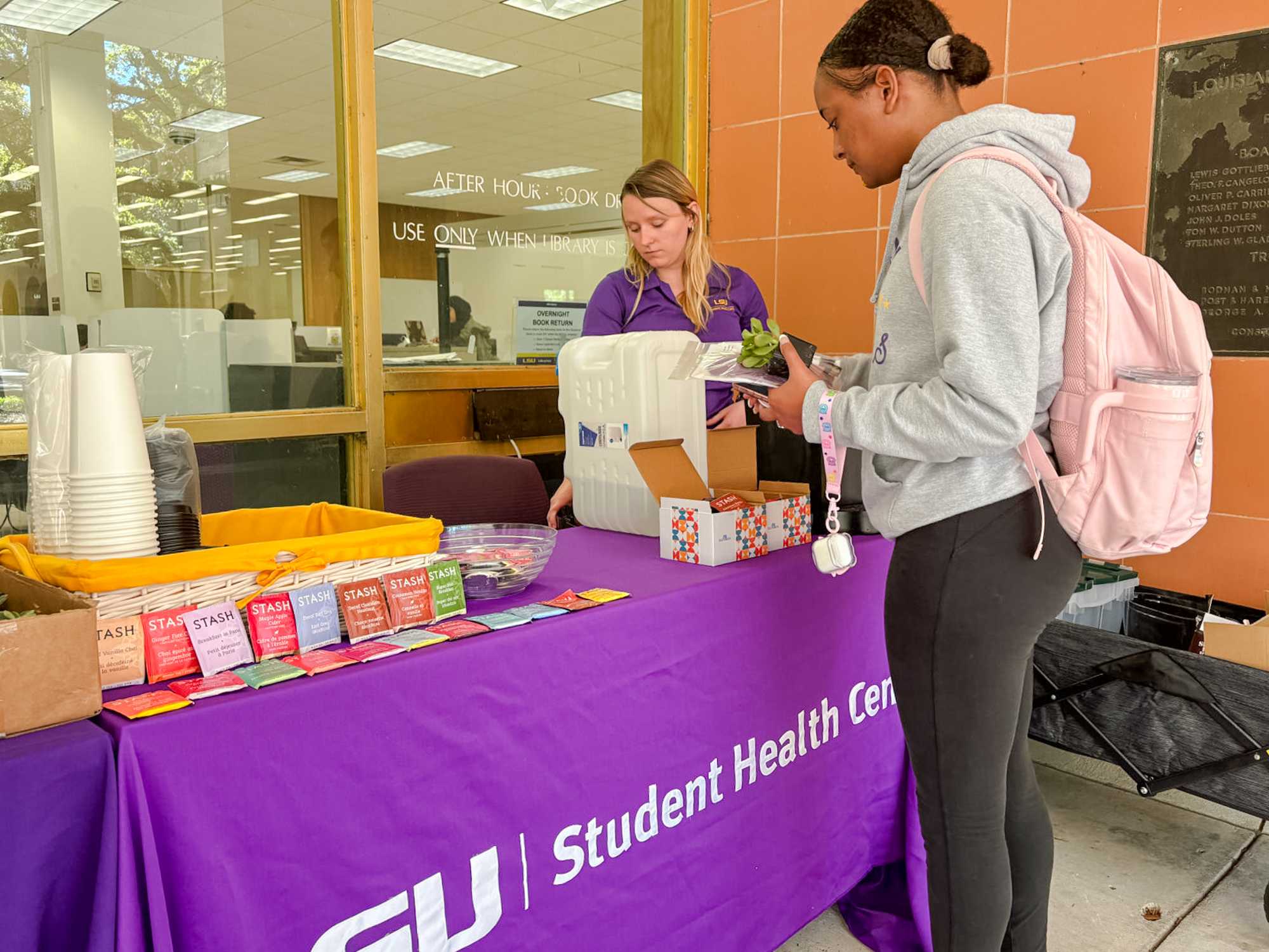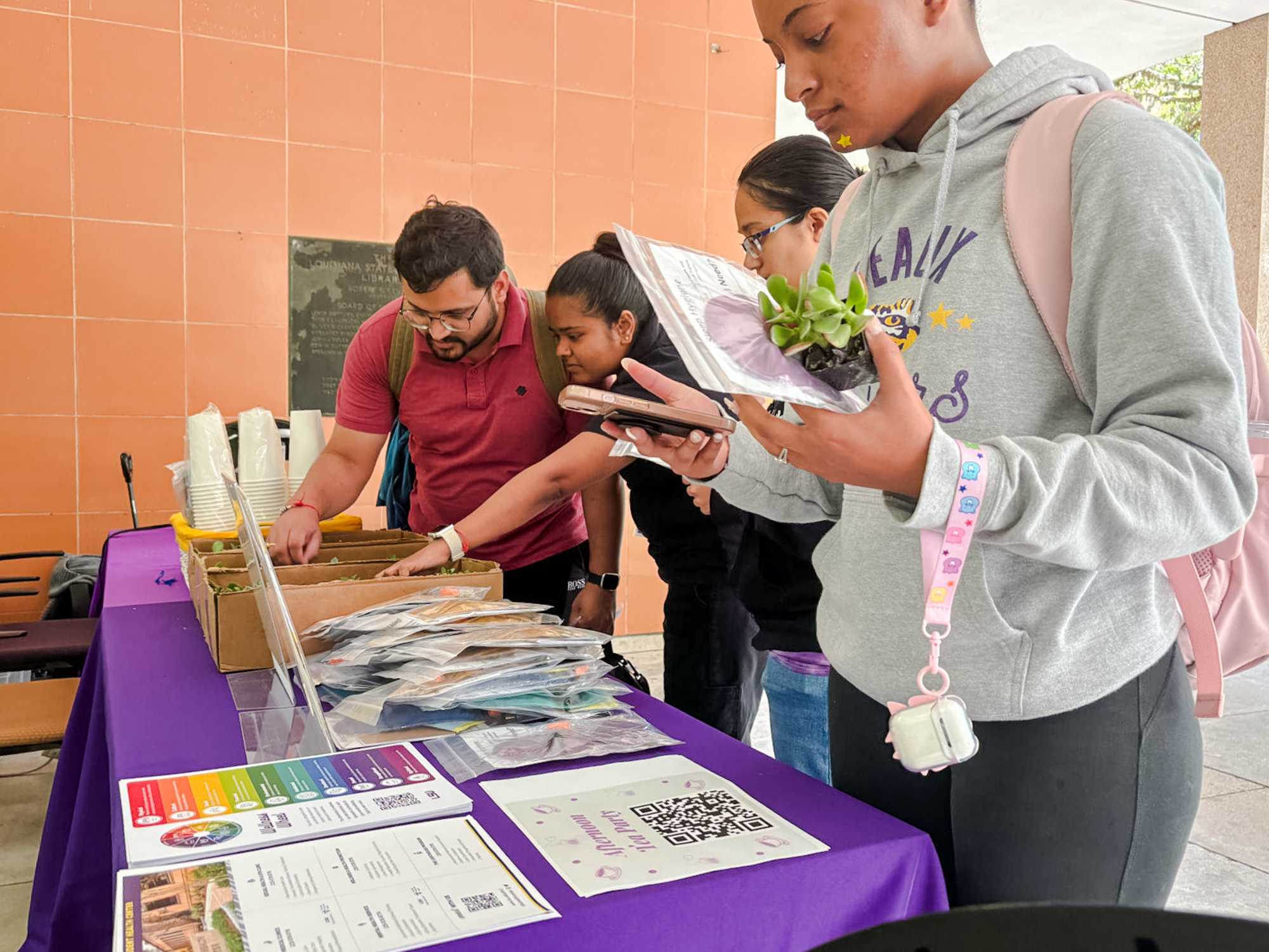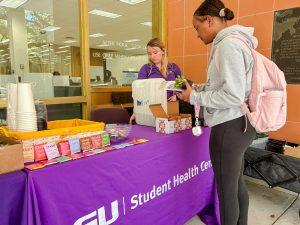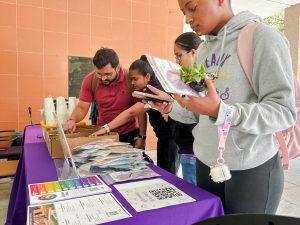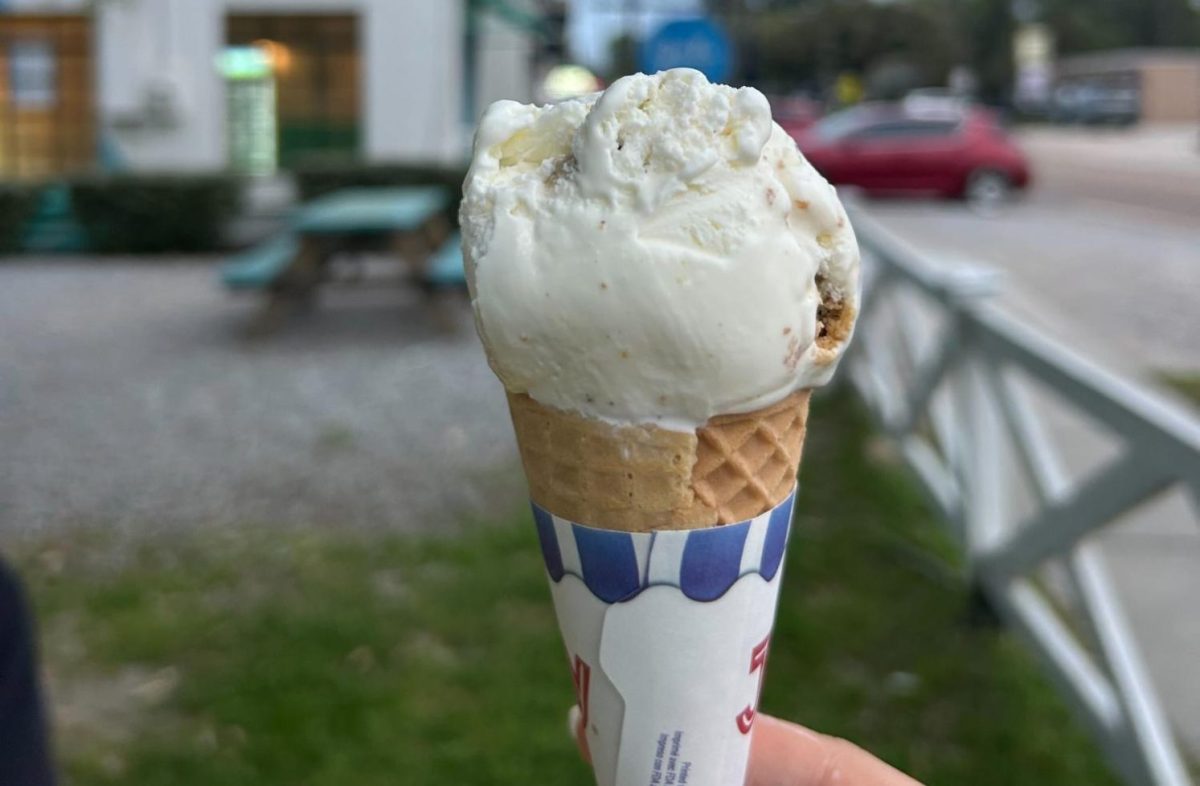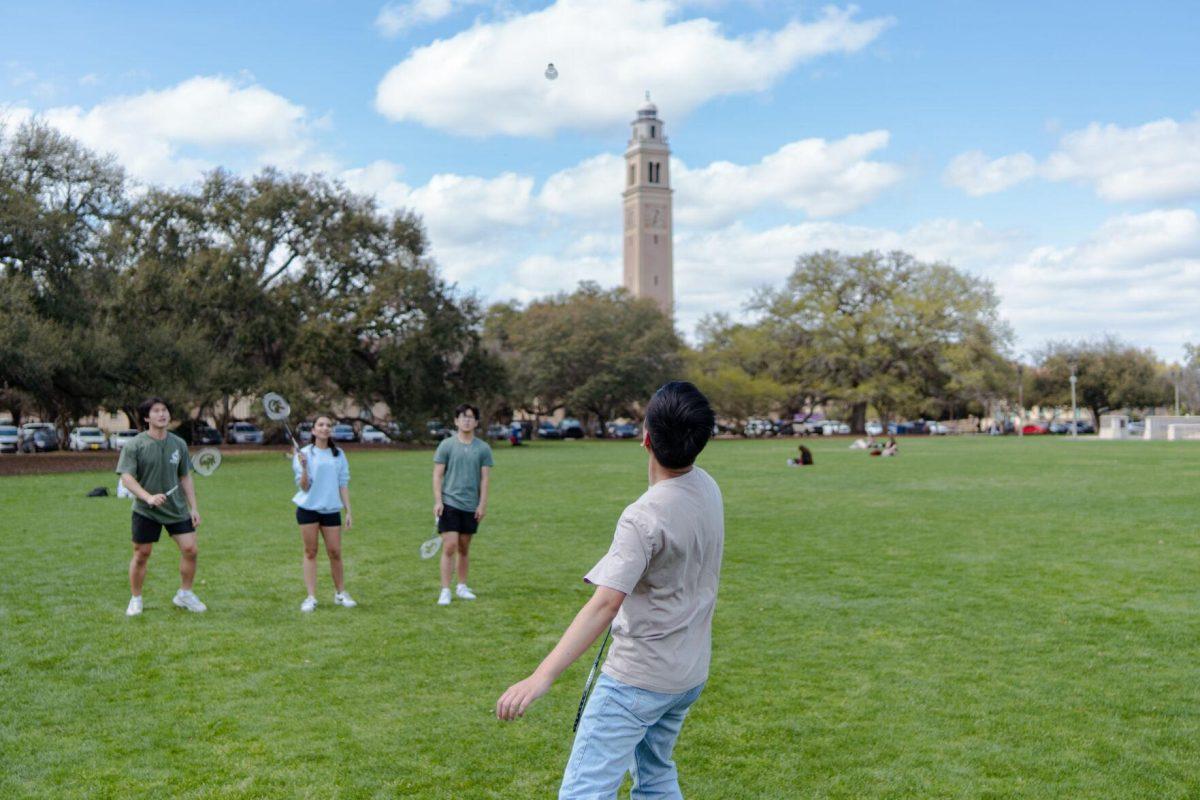To help students learn about the negative effects of caffeine intake, the Street Squad peer educations of the Student Health Center recently presented an “Afternoon Tea Party” on Thursday in front of the LSU Library.
The Street Squad works through the health center to promote events involving health and wellness. Lillian Marrus, art and design freshman, joined the team last semester. She said she enjoys how the job connects her skills as an art major.
“My older sister was part of Street Squad,” Marrus said. “Throughout the years, she’s been incorporated with it, and she wanted me to join. I really like doing this because we get to make graphics for the Student Health Center. I’m doing VA so, I can kind of do a mixture of whatever I want to do with art, but I kind of want to focus on graphic design.”
The table for the event had a tea-making station for students to select a type of tea and then make it using a Keurig. There was honey and sugar to add in after. They also had sleep hygiene packages for students to take including sleep masks, essential oils, ear plugs, tea packets and a small journal. Marrus came up with the idea for the event despite not being a big fan of caffeine.
“I try to stay away from caffeine intake just because I have problems with sleeping,” Marrus said. “I was thinking of a cute little afternoon tea party because it‘s spring. Also, I was thinking about Easter and what ideas would be fun to incorporate with that. That‘s why I came up with a tea party.”
Kennedy Falcon is a graduate assistant for wellness and health promotion at the Student Health Center and was helping Marrus with the event.
“How much caffeine that you intake in a day has been associated with poor sleep,” Falcon said “Meaning if you over intake caffeine, you can have trouble sleeping, and it can throw off your sleep cycle, which can be bad for students who are already probably short on sleep. Caffeine isn’t bad, but the amount that you intake in a day can affect your sleep.”
Another common issue Falcon brought up was caffeine immunity. She said one remedy to having trouble falling sleep could be using essential oils.
“It doesn’t mean you’re immune to caffeine, but you do build a tolerance to it,” Falcon said. “Just like people can build a tolerance to alcohol, people can build a tolerance to caffeine. But of course, with tolerance with alcohol, same thing with caffeine you might think you’re doing good and then you might get caught off guard and have something happen to your heart or something.”
Biology freshman Ashley Mercier said she only drinks coffee about two to three times a week.
“I don’t always drink coffee because of the taste,” Mercier said. “The benefits would definitely be the energy that you get; it helps when focusing or for a long study session. However, after the effects ware off, the crash can be pretty dramatic.”
Caffeine intake can increase the time it takes to fall asleep. Avoiding consuming caffeine in the afternoon or evening can lead to a better sleep schedule. The American Academy of Sleep Medicine recommends that adults should sleep seven hours or more per night on a regular basis to promote optimal health.
“We just want to educate students on proper caffeine intake and tea is one of the healthier options,” Falcon said. “It has a lower caffeine intake, but can still help you wake up in the morning and give you that little bit of energy that you need.”


